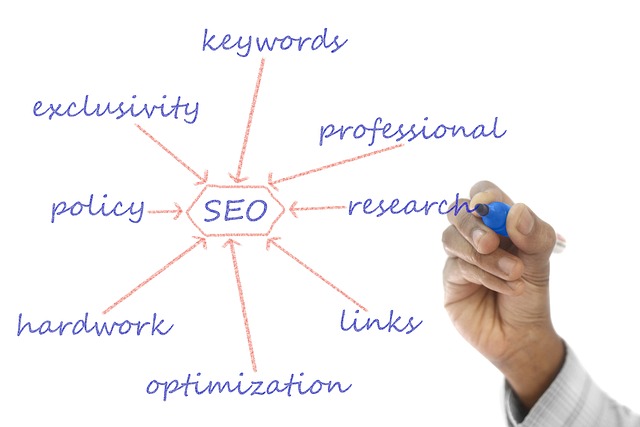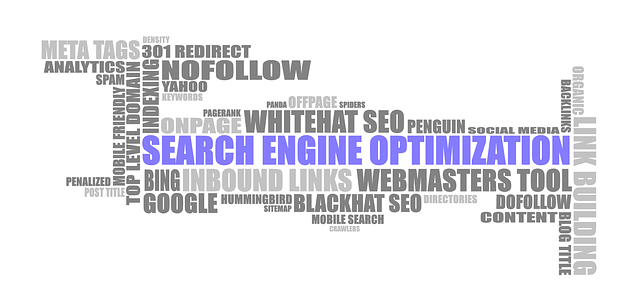The Future of SEO Conference explores how machine learning is revolutionizing SEO by shifting strategies from keyword-centric to user-experience focused. With advancements in technology, search engines better understand user intent and semantic relationships, demanding content optimization for mobile, voice search, and contextually relevant content. Establishing E-A-T (Expertise, Authoritativeness, Trustworthiness) is crucial for content creators to build audience trust. Core Web Vitals, introduced by Google, prioritize page performance influencing rankings and user satisfaction. Local SEO 2.0 emphasizes contextual relevance and personalized experiences driven by AI-powered analytics tools, ensuring strategies align with audience interests for enhanced search engine rankings.
In the rapidly evolving digital landscape, understanding next-gen SEO strategies is paramount for any business aiming to thrive in the future of SEO. As search algorithms become more sophisticated with machine learning integration, optimizing content for voice searches, and prioritizing user experience are no longer optional—they’re essentials. This article explores cutting-edge techniques, from the intricacies of Core Web Vitals to the power of AI analytics, equipping you with insights gained from leading voices in the industry for success at the upcoming Future of SEO Conference.
The Evolving Search Algorithm: Unlocking the Secrets of Machine Learning

The evolution of search algorithms, driven by advancements in machine learning, is a pivotal aspect of the future of SEO. These intelligent systems are constantly refining their capabilities, analyzing vast data sets to deliver more precise and contextually relevant search results. As technology progresses, search engines become increasingly adept at understanding user intent, language nuances, and complex semantic relationships. This evolution demands that marketers adapt their strategies, moving beyond keyword-driven approaches towards content optimization focused on user experience and value.
The upcoming Future of SEO Conference will delve into these cutting-edge developments, exploring how professionals can harness machine learning to enhance search visibility. By staying abreast of algorithm updates and leveraging data-driven insights, marketers can future-proof their strategies. This proactive approach ensures that businesses remain competitive in an ever-changing digital landscape, where the lines between technology and marketing blur, giving way to innovative solutions that redefine online discoverability.
Voice Search Optimization: Targeting the New Normal

As search behaviors continue to evolve, voice search is emerging as the new normal. With the rise of virtual assistants and smart home devices, users are increasingly relying on voice commands to find information quickly. Optimizing for this shift is crucial for any future-proof SEO strategy, especially when considering the Future of SEO Conference discussions. By focusing on long-tail keywords, natural language processing, and contextually relevant content, marketers can enhance their visibility in voice search results.
Incorporating intent-driven keywords and understanding user queries better can help businesses rank higher for voice searches. Additionally, ensuring mobile-friendliness and fast loading speeds is vital, as most voice searches are initiated on mobile devices. Adapting to these changes now will position brands to lead the way in the evolving SEO landscape.
E-A-T (Expertise, Authoritativeness, Trustworthiness): Building Credible Content

In today’s digital landscape, as we anticipate the future of SEO at conferences worldwide, establishing E-A-T (Expertise, Authoritativeness, Trustworthiness) has become paramount for content creators and marketers. Search engines, like Google, prioritize credible sources, and this is evident in their ranking algorithms. Building content with a strong E-A-T foundation involves demonstrating expertise in your field, ensuring your work is authoritative, and cultivating trust with your audience through transparency and reliability.
This means producing well-researched material that showcases your deep understanding of the subject matter. Backed by solid evidence, expert opinions, and reliable sources, your content will naturally gain credibility. Additionally, fostering a sense of trust requires maintaining high ethical standards, avoiding clickbait tactics, and providing accurate information. By focusing on E-A-T, content creators can ensure their work resonates with search engines and users alike, setting the stage for long-term success in the ever-evolving world of Next-Gen SEO.
Core Web Vitals: Enhancing User Experience for Better Rankings

In the ever-evolving landscape of search engine optimization (SEO), Core Web Vitals emerge as a game-changer, directly impacting rankings and user satisfaction. These metrics, introduced by Google, focus on key aspects of page performance, such as load time, interactivity, and visual stability. By optimizing for these vitals, websites can ensure faster loading times, improved responsiveness, and seamless user experiences, which are essential factors in the Future of SEO Conference discussions.
Web developers and marketers alike must pay attention to these core metrics to stay ahead in the digital competition. Implementing strategies that enhance user experience (UX) not only improves search engine rankings but also fosters higher engagement and retention rates. This shift towards user-centric optimization is a significant evolution in the SEO industry, reflecting a broader trend towards prioritizing real user interactions over traditional ranking signals.
Local SEO 2.0: Going Beyond Location-Based Searches

Local SEO 2.0 represents a significant evolution beyond traditional location-based searches, as we move into an era where context and intent are paramount. With advancements in technology, such as AI and machine learning, businesses can now provide more personalized and relevant experiences to customers, even when they’re not physically present at a location. This is particularly crucial for the future of SEO as it shifts from purely geographic to highly contextual.
At the Future of SEO Conference, experts emphasized the importance of understanding user behavior and preferences to stay ahead in the local SEO game. By integrating sophisticated analytics tools and leveraging data-driven insights, businesses can identify trends and tailor their services accordingly. This involves creating detailed customer personas, optimizing for voice search queries, and ensuring a seamless online presence across various platforms.
The Power of Semantics: Understanding Intent and Context

In the ever-evolving landscape of search engine optimization, understanding user intent and contextual relevance is no longer just an advantage—it’s a necessity. The power of semantics lies in its ability to decipher the nuances of human language, ensuring that digital content resonates with both search engines and users alike. As we look towards the future of SEO at conferences worldwide, one key focus is the integration of semantic technologies. These advancements enable us to go beyond keyword matching and delve into meaning-based understanding, where search algorithms can interpret context, recognize entity relationships, and grasp user intent more accurately.
By embracing semantic optimization, content creators and marketers can elevate their strategies. It means crafting content that not only answers queries but also provides valuable insights tailored to the user’s needs. This shift in approach is especially crucial as search engines strive to deliver more accurate and helpful results, ensuring a positive user experience. At the core of this transformation is the art of aligning content with the semantic web, where data and information are interconnected, fostering a richer and more meaningful online environment.
AI-Powered Analytics: Predicting Trends and Performance

As we look ahead to the future of SEO, Artificial Intelligence (AI) is set to play a pivotal role in shaping the landscape. AI-powered analytics tools are revolutionizing how marketers and search engine optimizers understand user behavior and market trends. These advanced systems can process vast amounts of data, enabling precise predictions about content performance and user preferences. By leveraging machine learning algorithms, these tools can identify patterns that might otherwise go unnoticed, giving businesses a significant edge in the digital arena.
At the forefront of this evolution is the potential for AI to offer personalized, data-driven insights tailored to individual users. This level of customization will be crucial in the upcoming Future of SEO Conference, where industry experts will gather to discuss the latest innovations. With AI analytics, marketers can create hyper-relevant content strategies, ensuring their online presence resonates with audiences and ultimately driving better search engine rankings.
